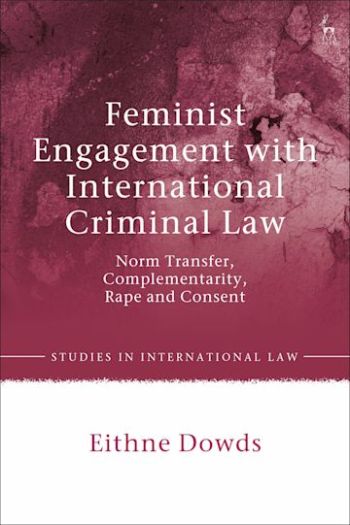
This work introduces and further develops the feminist strategy of 'norm transfer': the proposal that feminist informed standards created at the level of international criminal law make their way into domestic contexts. Situating this strategy within the complementarity regime of the International Criminal Court (ICC), it is argued that there is an opportunity for dialogue and debate around the contested aspects of international norms as opposed to uncritical acceptance. The book uses the crime of rape as a case study and offers a new perspective on one of the most contentious debates within international and domestic criminal legal feminism: the relationship between consent and coercion in the definition of rape. In analysing the ICC definition of rape, it is argued that the omission of consent as an explicit element is flawed. Arguing that the definition is in need of revision to explicitly include a context-sensitive notion of consent, the book goes further, setting out draft legislative amendments to the ICC 'Elements of Crimes' definition of rape and its Rules of Procedure and Evidence. Turning its attention to the domestic landscape, the book drafts amendments to the United Kingdom (UK) Sexual Offences Act 2003 and to the Youth Justice and Criminal Evidence Act 1999: thereby showing how the revised version of the ICC definition can be applied in context of the UK.